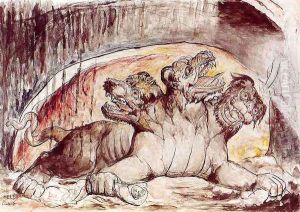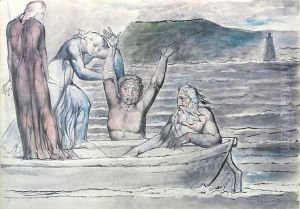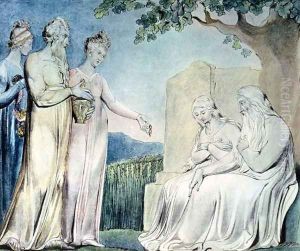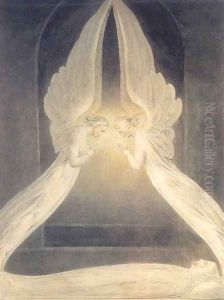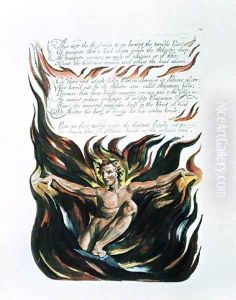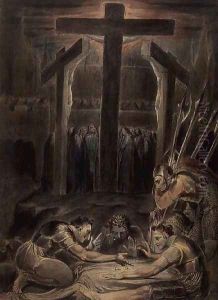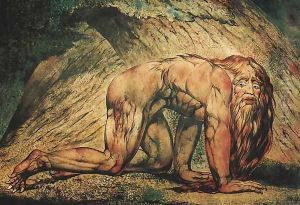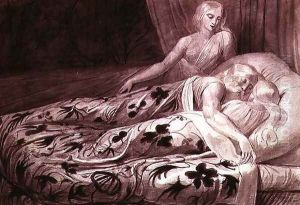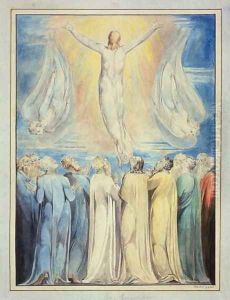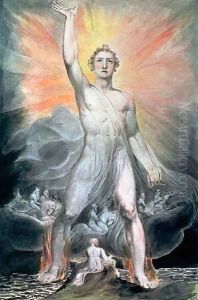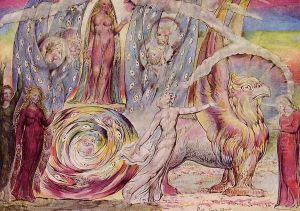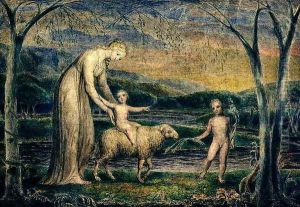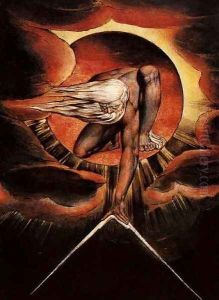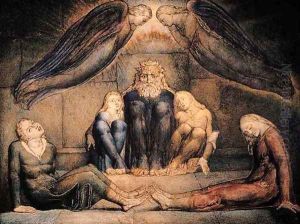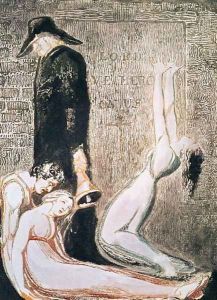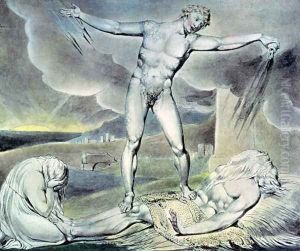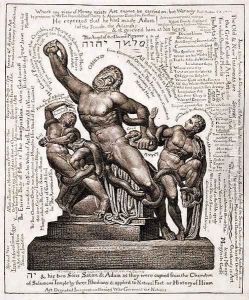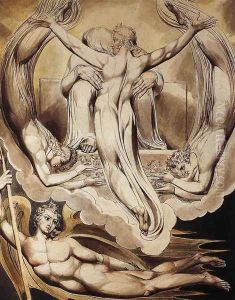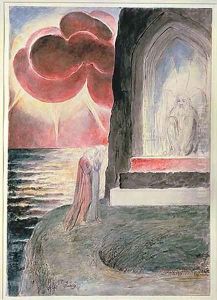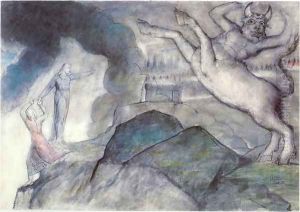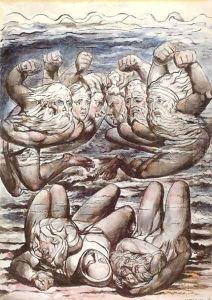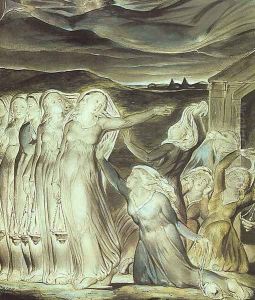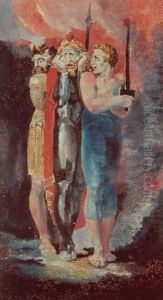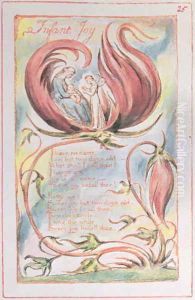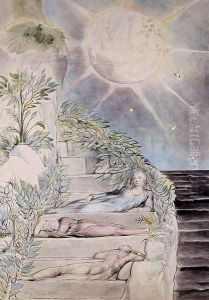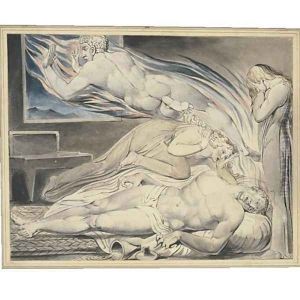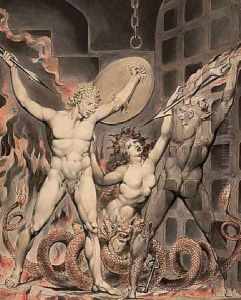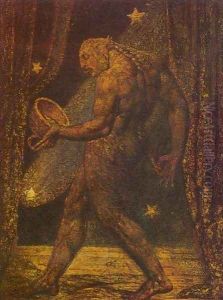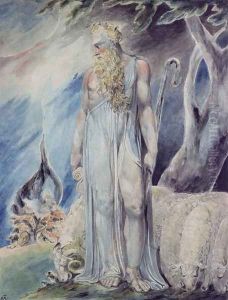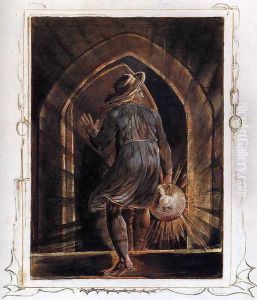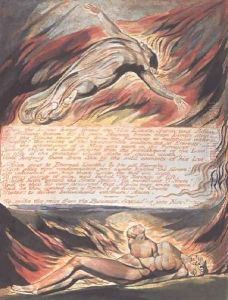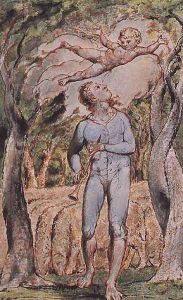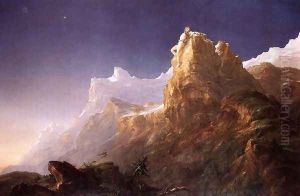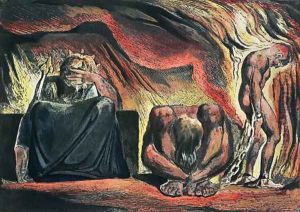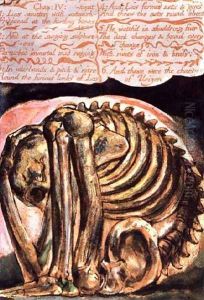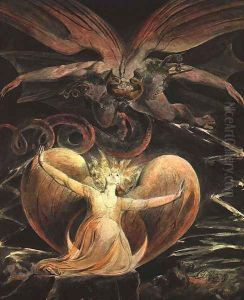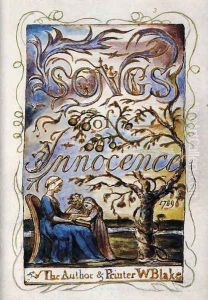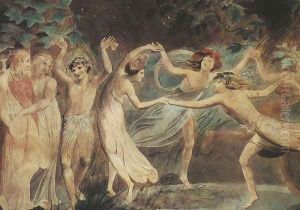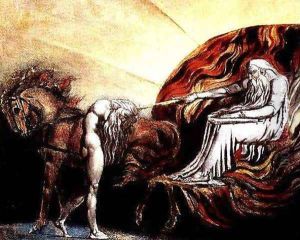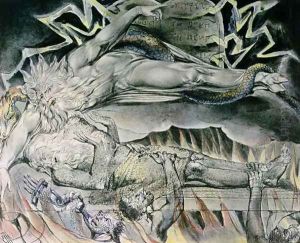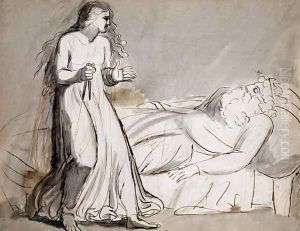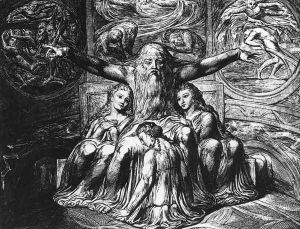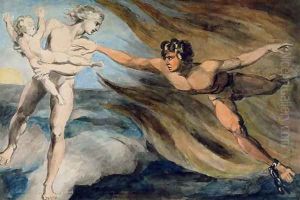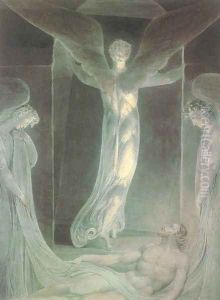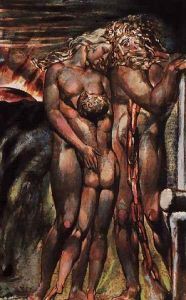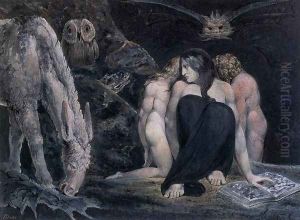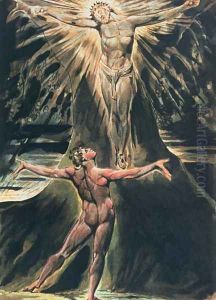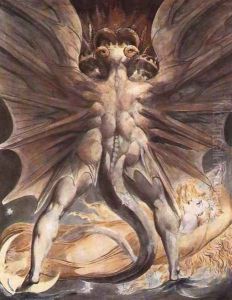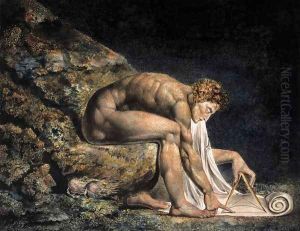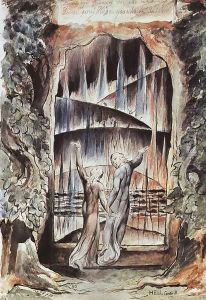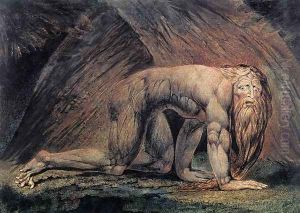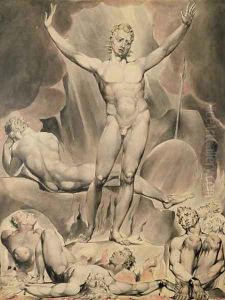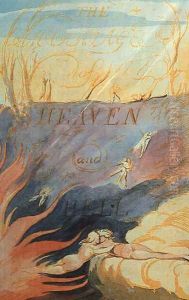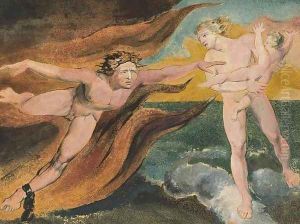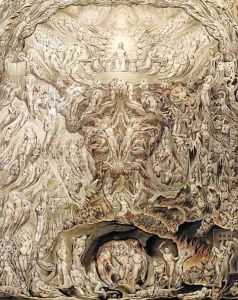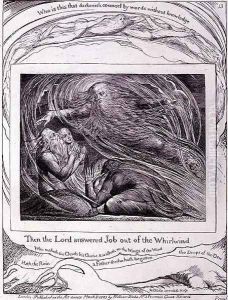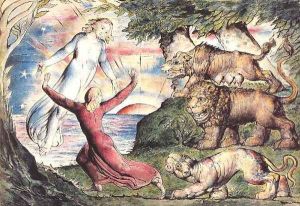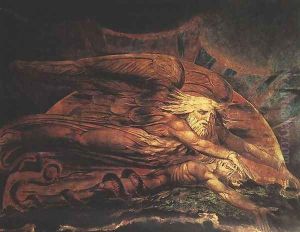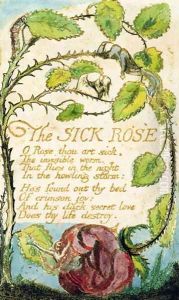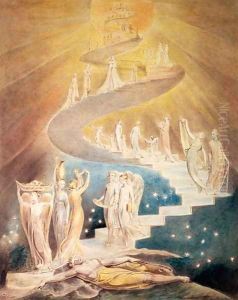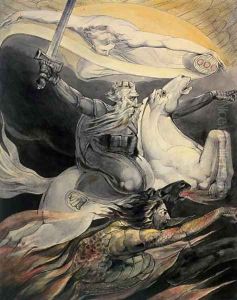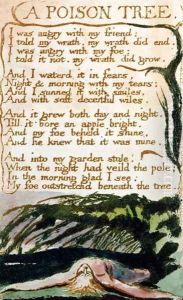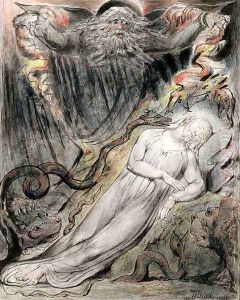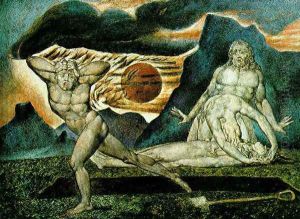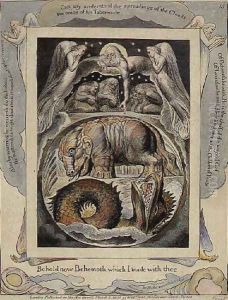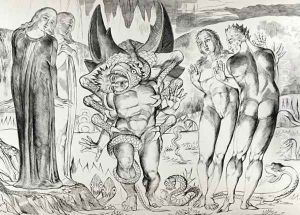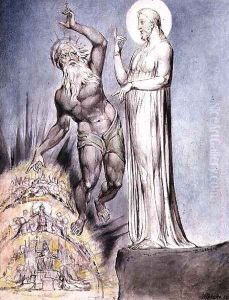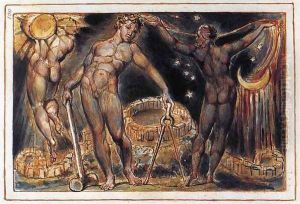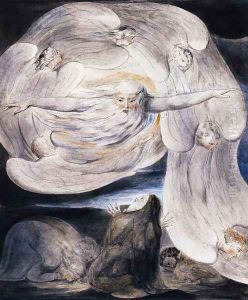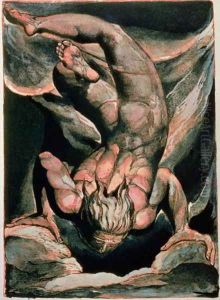William Blake Paintings
William Blake was born on November 28, 1757, in London, England, into a modest family. From an early age, Blake exhibited a profound interest in the arts, showing remarkable talent in poetry and visual arts. He was enrolled in drawing classes at a young age and was later apprenticed to an engraver, James Basire, which significantly influenced his artistic direction. Blake's education in the arts continued at the Royal Academy, though he often found himself at odds with the institution's teachings and philosophies.
Blake's career as an artist and poet was intertwined with his spiritual and visionary experiences. He developed a unique method of illuminated printing, which allowed him to integrate his poems with images, creating deeply symbolic and original works. His most notable publications include 'Songs of Innocence' (1789) and 'Songs of Experience' (1794), which reflect his philosophical and social beliefs, particularly his views on the innocence of childhood versus the corruption and repression of adulthood and society.
Despite his profound contributions to poetry and the visual arts, Blake was largely unrecognized during his lifetime and struggled with financial difficulties. His work was considered eccentric, and his visionary experiences were often dismissed as signs of madness. However, Blake's influence grew posthumously, and he is now regarded as a seminal figure in the history of poetry and the visual arts of the Romantic Age. His works are celebrated for their imaginative power, mystical themes, and revolutionary spirit.
Blake's marriage to Catherine Boucher in 1782 was a significant partnership, with Catherine assisting Blake in his printing processes and supporting his artistic endeavors. Throughout his life, Blake was deeply engaged with the political, social, and religious issues of his time, often critiquing the prevailing attitudes toward authority, the church, and the state.
William Blake passed away on August 12, 1827, in London. His legacy endures in the vast body of poetry, artwork, and thought he left behind, influencing countless artists, poets, and thinkers in the generations that followed. His vision and creativity continue to be celebrated as a testament to the power of imagination and the human spirit.
